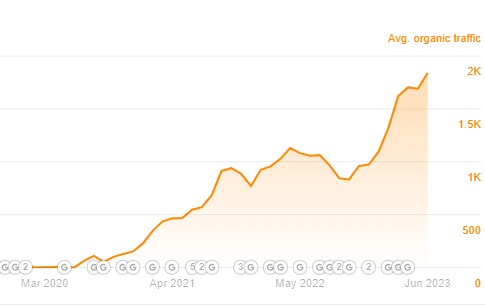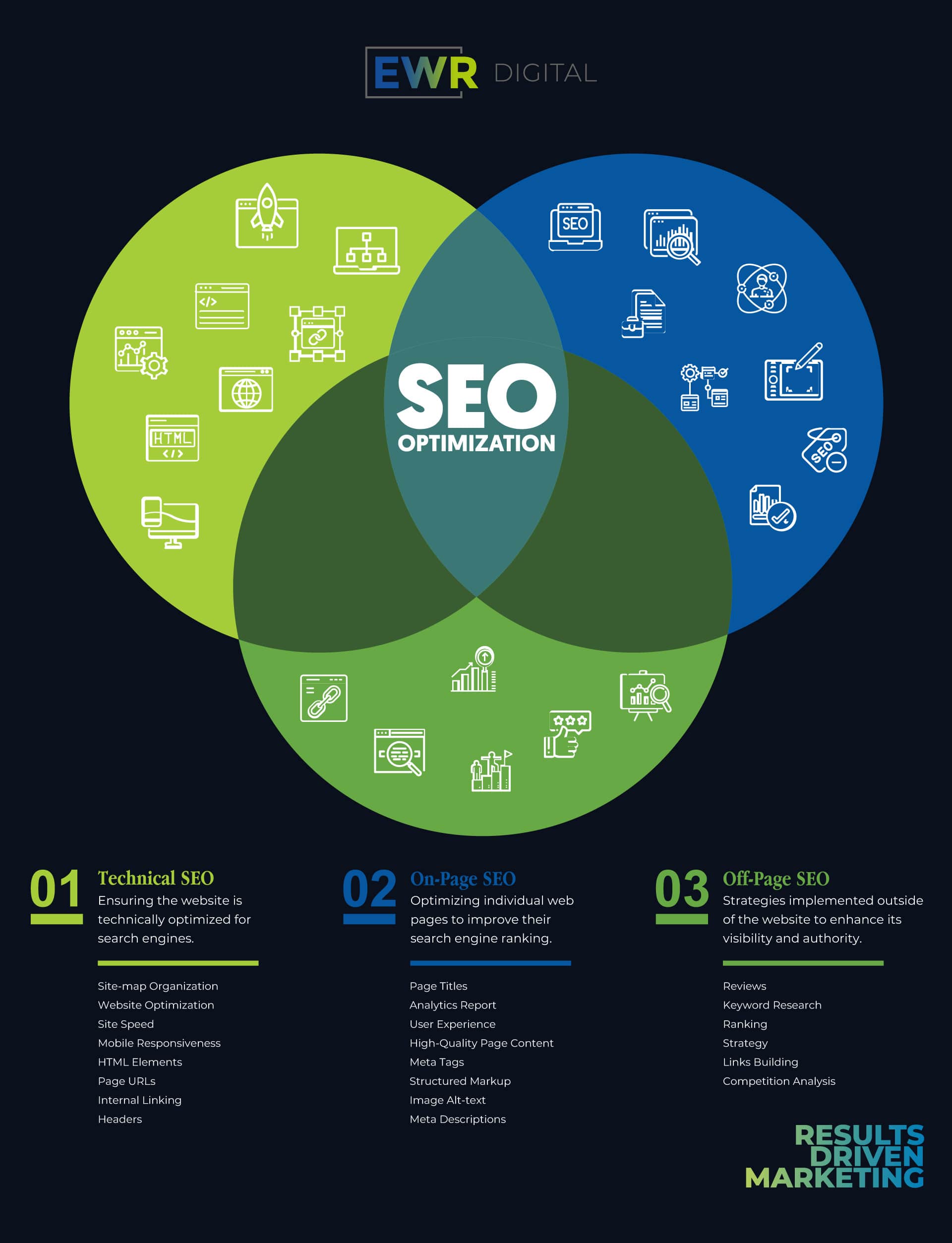
Fundamentals of Enterprise SEO: Boosting Online Visibility for Large Businesses
In today’s exceeding digital world, where online presence can make or break a business, search engine optimization (SEO) plays a pivotal role in driving organic traffic, improving visibility, and increasing conversions. While SEO is crucial for businesses of all sizes, enterprise SEO presents its own set of unique challenges and opportunities. In this blog, we’ll delve into the fundamentals of enterprise SEO and explore key strategies to enhance online visibility for large businesses.
Legacy issues pose significant challenges for IT teams when it comes to enterprise SEO. Outdated platforms or tech stacks can hinder the implementation of modern SEO best practices and limit the ability to achieve optimal search engine rankings. These legacy systems often lack the necessary flexibility and customization options required for effective SEO strategies. Additionally, outdated code structures and limited integrations can impede the implementation of critical SEO elements such as schema markup, mobile responsiveness, and site speed optimization. As a result, IT teams may find themselves grappling with:
- outdated infrastructure
- limited scalability
- cumbersome workflows
Making it difficult to keep up with the ever-evolving SEO landscape and hinder the overall success of enterprise SEO efforts and is why you should consider a partner like EWR digital.
Understanding Enterprise SEO
Like all other company websites, an enterprise many have a unique set of orgainzational challenges with it’s website. It may require Enterprise Search Engine Optimization (SEO) to realize its organizational goals.
Enterprise SEO focuses on optimizing websites for large-scale organizations with expansive websites, numerous products or services, and multiple locations and categories. It requires a comprehensive approach that integrates site architecture and technical SEO, content, and off-page optimization techniques to achieve maximum search engine visibility. The primary objective of enterprise SEO is to enhance organic search performance, drive targeted traffic, and ultimately increase revenue for the business.
Case Study: Take T-Mobile’s website, for instance. T-Mobile has thousands of web pages dedicated to selling mobile phones, with each phone having its dedicated webpage. Check out this URL for the iPhone 11 Pro on the T-Mobile website; https://support.t-mobile.com/community/phones-tablets-devices/apple/iphone-11-pro. The URL constitutes certain keywords that include the website’s main keyword being ‘phones tablets devices.’ The brand’s name follows it as ‘Apple,’ then the individual product being ‘iPhone 11 Pro’. By constructing and applying this URL structure for all phones, T-Mobile makes sure that its important keywords are included in most of its web pages.
Enterprise SEO involves a large-scale strategy of driving traffic from search results that appear on the search engines. It’s more about the pages of the website and less about the physical size of the company. (Size does matter though!) A company can have thousands of indexed web pages if it has an online store for its products. What is important is to organize the info into categories that show, “Domain Expertise” or “Domain Authority”.
Large corporations need a powerful SEO strategies, especially if their web presence is extensive.
Develop a Solid SEO Strategy
Creating a well-defined SEO strategy is the foundation of successful enterprise SEO. Start by conducting thorough keyword research to identify relevant terms and phrases that align with your business goals. Leverage enterprise-level SEO tools to analyze search volume, competition, and user intent. Develop a comprehensive keyword strategy that targets both informational and transactional queries to attract a diverse range of potential customers.
Choosing Your Keywords
Choosing the right keywords is an important part of national SEO as well as enterprise SEO. Howwever, choosing the right keywords is paramount in enterprise SEO! It involves understanding your target audience, conducting thorough keyword research, and aligning your chosen keywords with your business objectives. Identify relevant topics and themes related to your industry, considering the words and phrases your potential customers would use in their searches. Utilize keyword research tools to explore search volumes, competition levels, and user intent. Strive for a balance between high-volume keywords and specific long-tail keywords. By selecting the right keywords, you optimize your content and enhance your chances of ranking higher, driving targeted traffic to your enterprise website. You should focus on selecting high and medium-tail keywords first.
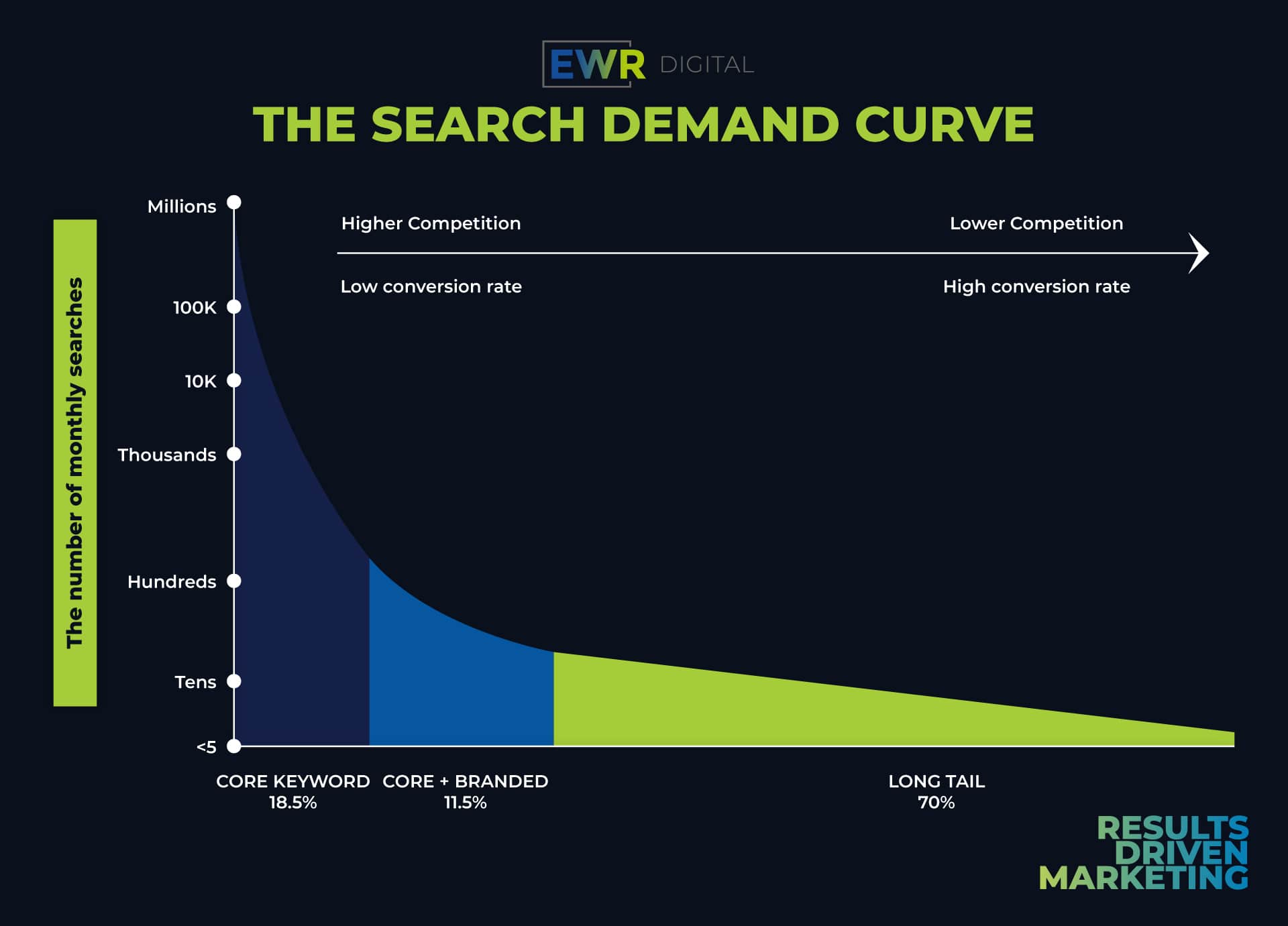
Conduct a Website SEO Audit
A website audit will help you strategize on your optimization strengths and weaknesses. The audit should show you what pages easily come up in search engines and what pages need to be improved. With this insight, you can establish an SEO plan for enhancing your website’s ranking on search engines.

While doing the audit, you must analyze your website from these two standpoints. They will provide you with insight into what you need to optimize.
- Average Site Performance: Establish a benchmark on your Core Web Vitals: General Speed, as well as how you are implementing general best SEO practices. Using this benchmark, optimize content and how your infomation is being organized and how well Google understands what you are staying from the least performing pages going up.
- High-Value Content: Optimize your website by auditing content value to ensure all web pages have high-quality content. Optimize the content on low-performing, thin content pages to transform them into high-value content and rank in Google.
Signs an Onpage SEO Audit would be beneficial:
- Your website continues to fall in the rankings
- Your website has a high domain authority (DA) but struggles to move up in the rankings
Optimize Technical Infrastructure
Enterprise websites often have complex technical infrastructures that require careful optimization. Ensure your website is search engine friendly by addressing technical aspects such as site speed, mobile-friendliness, crawlability, and indexability. Implement structured data markup to provide search engines with additional context about your content and improve the appearance of search results through rich snippets, which fyi is where Google is going they are going to start serving up not just pages but the best answer on the page!
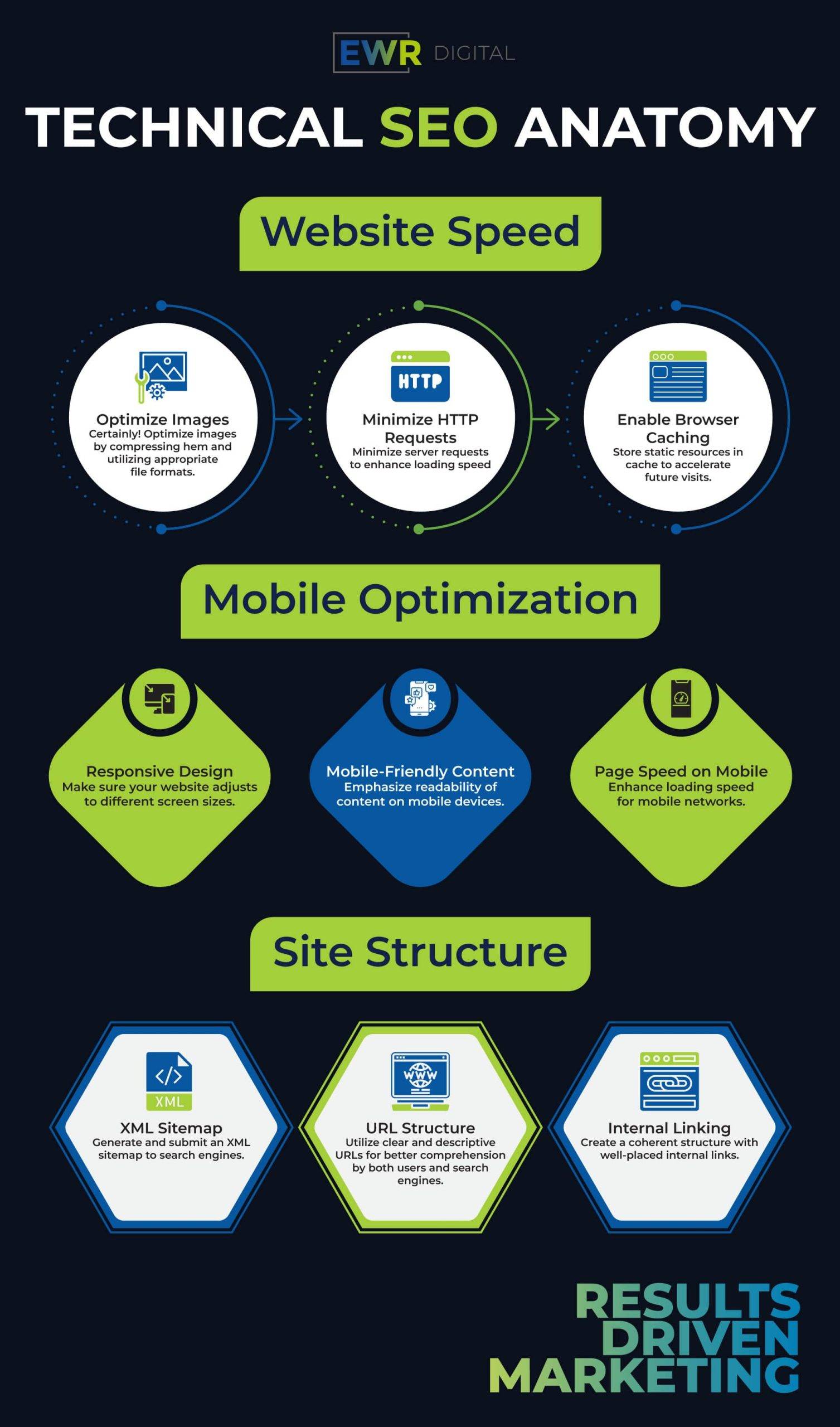
Streamline On-Page Optimization
On-page optimization plays a vital role in enhancing organic visibility. Develop a content hierarchy by organizing your website’s pages in a logical and intuitive manner. Optimize meta tags, headings, and internal links (think as a type of reference citation) to reflect relevant keywords and provide search engines with clear signals about your content so Google better understands what are you are trying to say. Create unique and engaging content that aligns with user intent, incorporates targeted keywords, and delivers value to your audience. Utilize internal linking to enhance crawlability and facilitate navigation throughout the website.
Website Requires Quality Content
Constantly creating and publishing content is very important for enterprise SEO. Google also says that if you do SEO over half you time should be updating exsiting content. Having a blog page on the company’s website is ideal for attracting traffic to your website. A blog is an easy way to create a constant supply of SEO-worthy content to build out your domain expertise.
Blog posts are a lot more engaging than other pages. They are also a good way of commanding authority as an industry leader in your respected industry. This is where E-A-T comes in.
Google E-A-T, which stands for Expertise, Authoritativeness, and Trustworthiness, is a set of guidelines used by Google to assess the quality and credibility of web content. It emphasizes the importance of demonstrating expertise in a specific field, building authority through reputable sources and backlinks, and establishing trustworthiness by delivering accurate and reliable information. E-A-T is particularly significant for websites in the health, finance, and news sectors where accuracy and trust are critical. By adhering to E-A-T principles, websites can enhance their chances of ranking higher in search engine results and gaining credibility among users.
Try to incorporate infographics, white papers, custom photography, awards, testomonials and reviews, case studies and slideshows in your blog posts. The more dynamic your content is, the better your website SEO performance will be because it helps you tell your story better.
Research has also shown that the more time users spend on your website, the higher your website will rank across related search results. All forms of content such as pictures, videos, and text can be published on your blog pages and will help.
It’s good to mix both short and long-form content, why? Well it will just depend on what you are talking about and should best answer the query of the user or your prospect that is on the customer journey through your sales funnel.
Still, it’s advisable to try out different types of content to see what will work for you and your audience. Make sure that the content is relatable, original, engaging, and valuable to the user. (Remember: You are trying to answer the query best.)
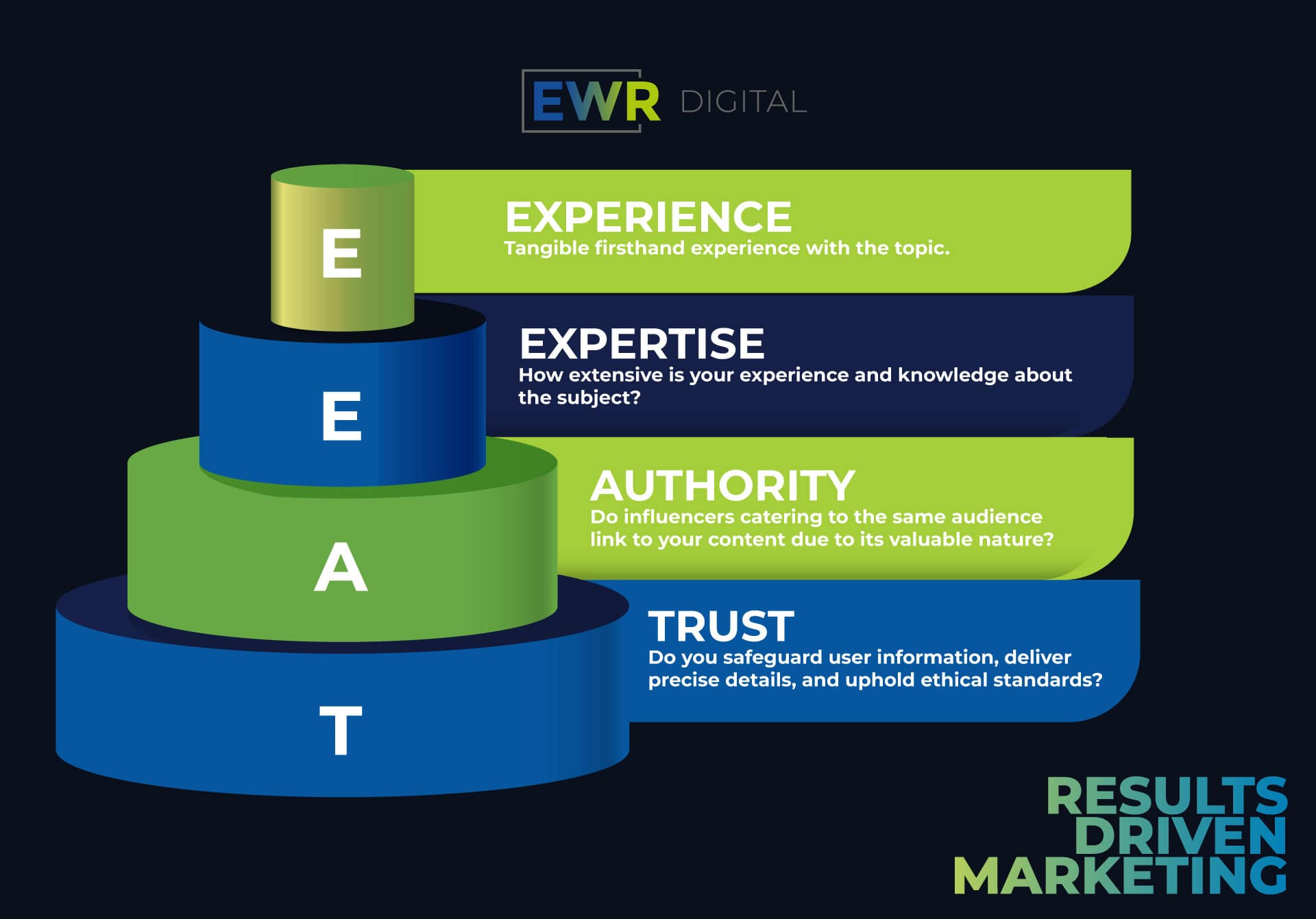
Build High-Quality Backlinks
Building a robust backlink profile is crucial for enterprise SEO. Focus on acquiring high-quality backlinks from authoritative and relevant websites. Leverage your industry expertise to develop valuable content that attracts only natural backlinks. Purchaseing backlinks are considered spam. DO NOT BUY LINKS. (This is where a lot of enterprises could get into trouble as they don’t know what there SEO provider may be doing.)
We can about this more and how amplify your online presence and build trust within your industry correctly in another SEO-rated blog post.
Social Media Engagement
While not a direct ranking factor, social media engagement can amplify your content’s reach, drive traffic, and enhance brand visibility. Develop a social media strategy that aligns with your SEO goals. Create shareable content, engage with your audience, and leverage social listening tools to monitor conversations and identify opportunities to address customer needs. I belive good can understand sentiment now. Listen to this SEO podcast interview where we interviewed Gary Illyes of Google talk about this indirectly. It’s very insightful if you listen carefully to what he is saying.
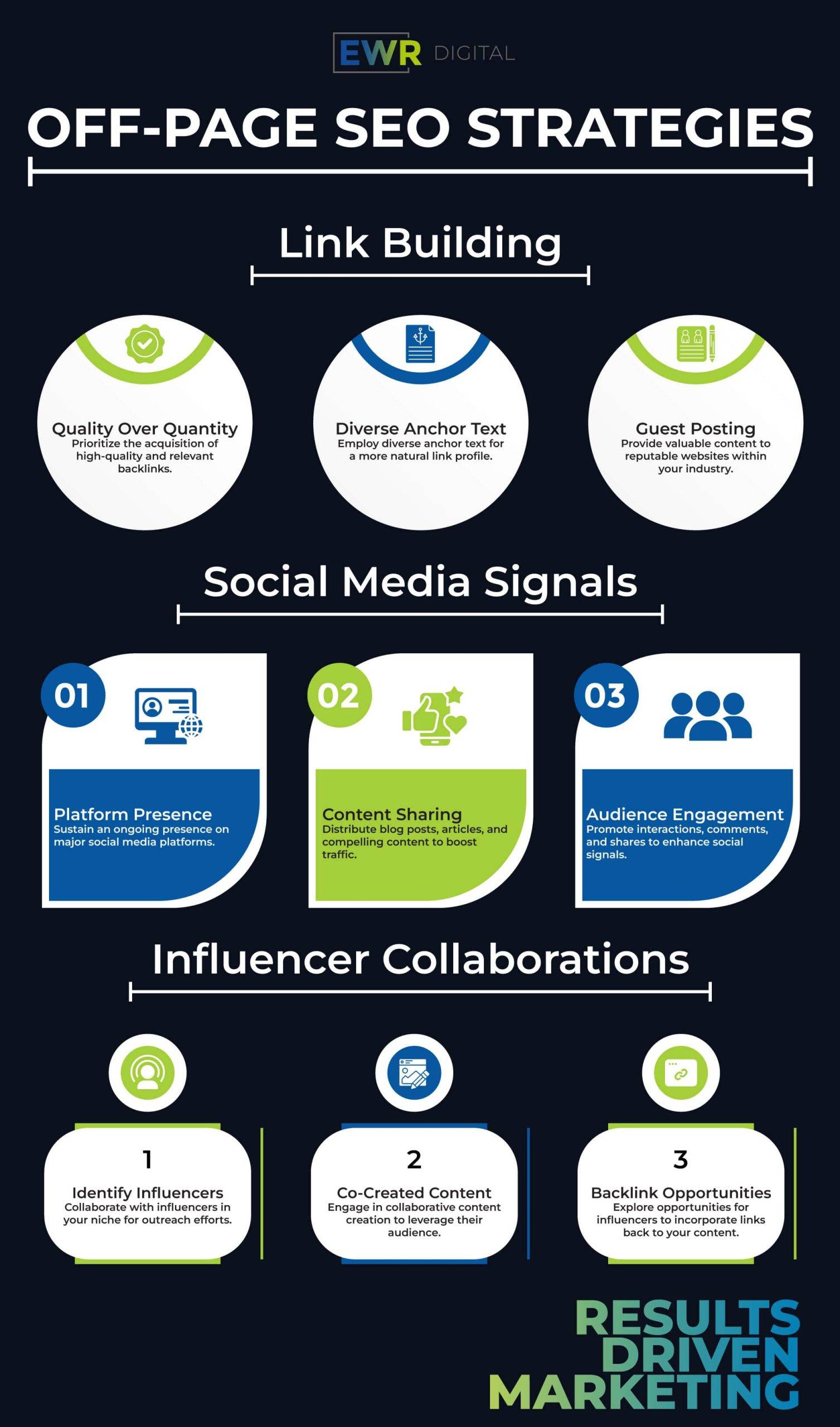
Harness the Power of Data
Leverage data analytics tools to gain insights into user behavior, keyword performance, and conversion rates. Use these insights to refine your SEO strategy, identify content gaps, and improve user experience. Monitor your website’s performance through regular audits, ensuring that pages are properly indexed, load quickly, and are free from technical errors.
Analyze Organic Keyword Traffic
It’s very important that you analyze keyword traffic using Google Search Console data. Here are a few filters you should apply while analyzing keywordtraffic to your site.

- Clicks: Clicks will highlight the specific keywords that will drive visitor traffic to your website. This means that web users are searching for these keywords land on your site frequently. What pages and what terms
- Impressions: A lot of impressions will show you which search keywords are popular search terms among web users and you can see if you are getting more of that traffic. With this, you should be able to take advantage of optimizing the keywords that are getting visibility.
- Clickthrough Rate: A high clickthrough rate means search keywords are aligned with your site content. This number can always be better. This about getting more clicks for the impressions you are already getting!
- Avg Position:
“Avg Position in Search Console is a metric that I personally find less valuable and therefore do not pay much attention to. This metric represents an aggregated number, which means it provides an average position for all keywords. However, it fails to offer insights into individual keyword performance and can be misleading. Instead, I prefer to focus on more specific and actionable metrics that provide a deeper understanding of keyword rankings and their impact on organic traffic and conversions. By analyzing and optimizing individual keyword performance, I can make more informed decisions to improve my SEO strategy effectively.” –Matt Bertram
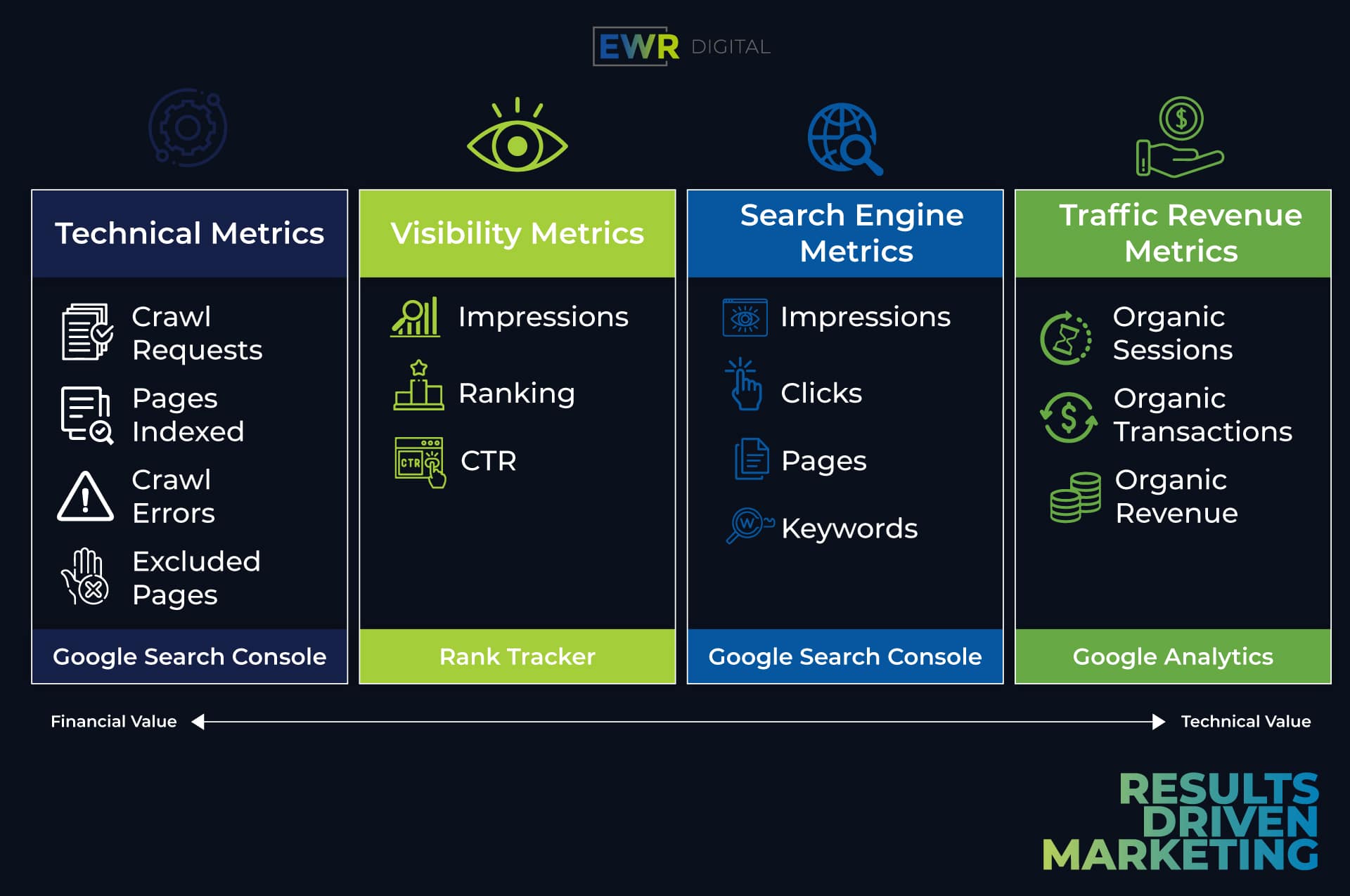
Competitor Analysis
It’s important to analyze your competitors’ SEO efforts to observe how well they perform against you. A competitor analysis will show you how valuable keywords are optimized in your industry. Your competition is a goldmine of data that can advise how you go about your SEO strategy.
First, begin by identifying your competition and where they rank on search engines. Secondly, make sure that you filter the competitor analysis using keywords. You want to find out which keywords are driving organic traffic to your competitors’ websites.
Don’t forget to analyze which content from your competitor is popular. From this information, you can formulate a good strategy based on what you feel will help your SEO efforts, what will not, and what promising opportunities are there.
It’s also good to track position changes in keyword ranks to note any performance improvements.
SEO Is Not Difficult
The hefty nature of enterprise websites can appear daunting at first. The numerous web pages are hard to optimize and maintain. Search engine algorithms are also getting smarter, which is good it been better data for the searcher and the competition for a place on Page 1 is more fierce now than it has ever been. Think about it you have to be one of the top 10 million of websites to make the first page today!
However with these approaches and strategies, you can get to the top of the search engines over time. I would tell you only a few people out there are really taking the time to do quaility seo and EWR Digital is one of them.
Enterprise SEO requires a comprehensive and strategic approach to optimize large-scale websites, drive organic traffic, and increase conversions. By developing a solid SEO strategy, optimizing technical infrastructure, streamlining on-page optimization, good content, natural backlinks, and social media engagement you can win just keep it up!


